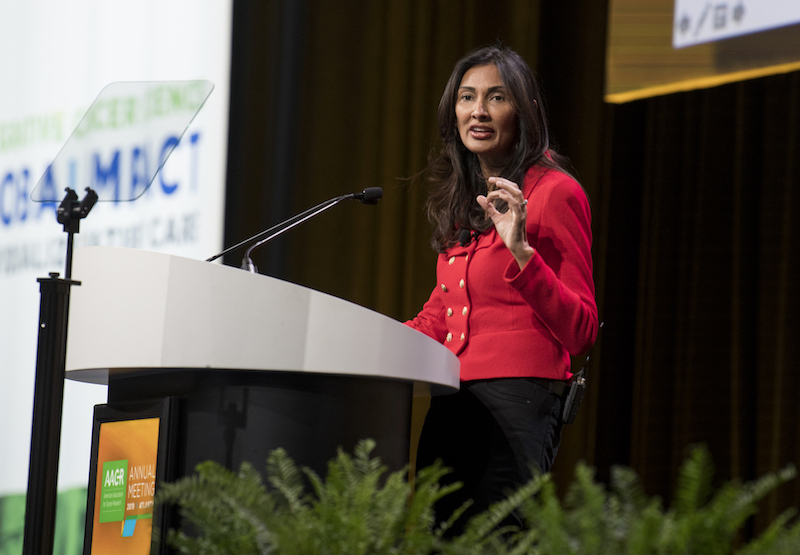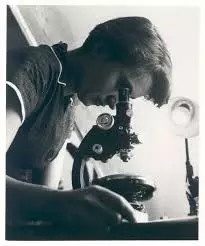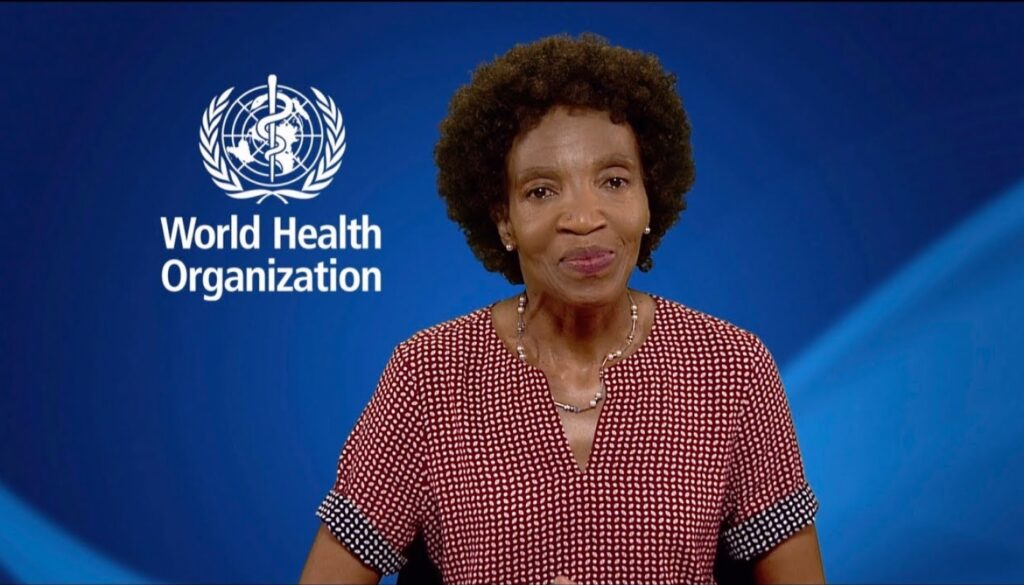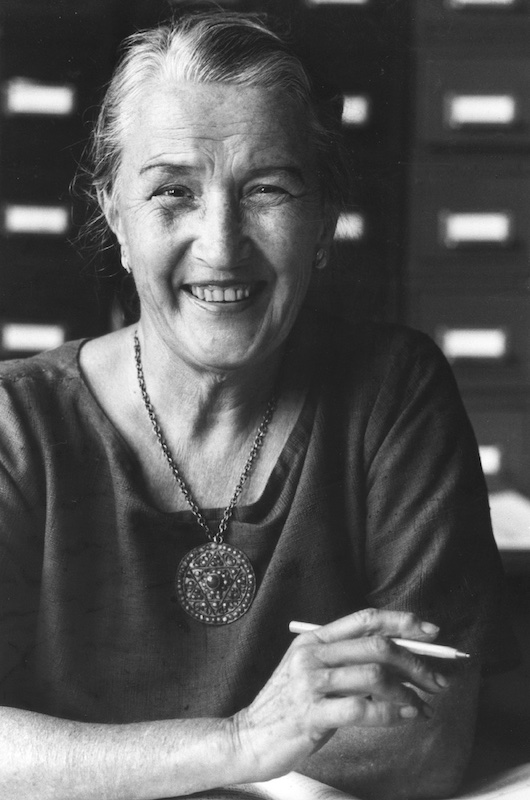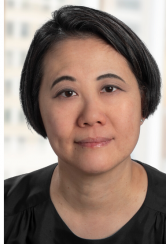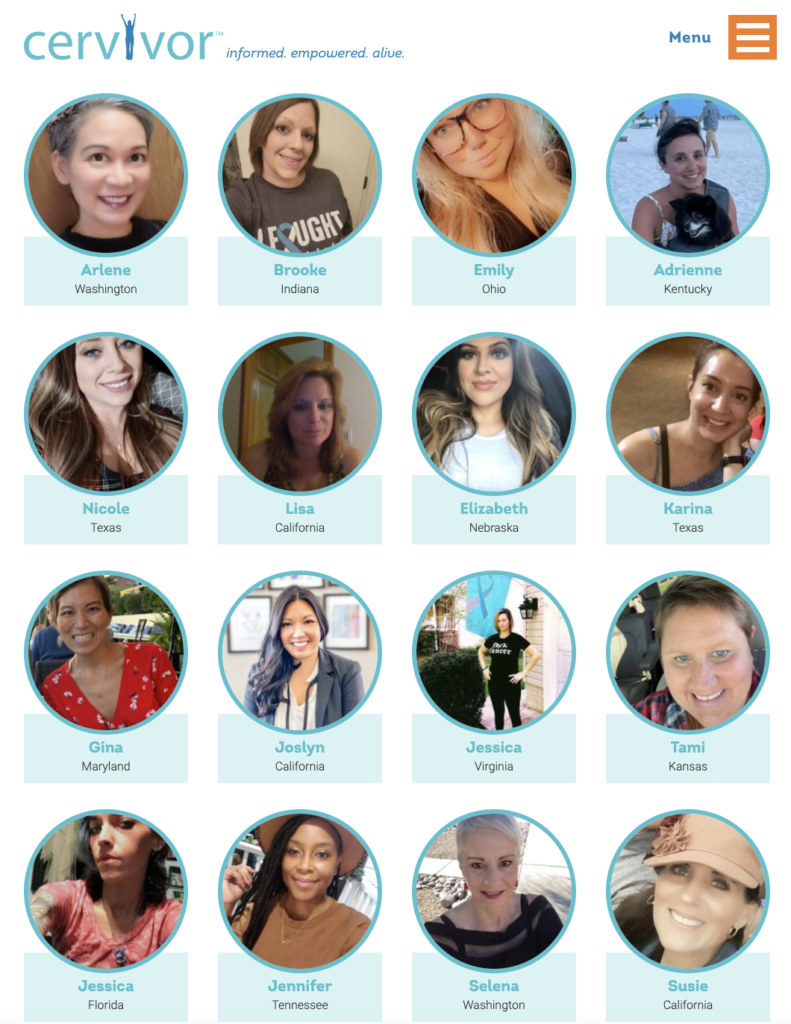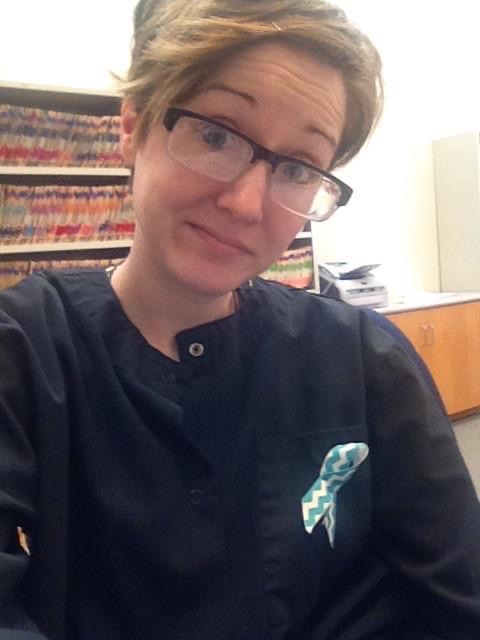
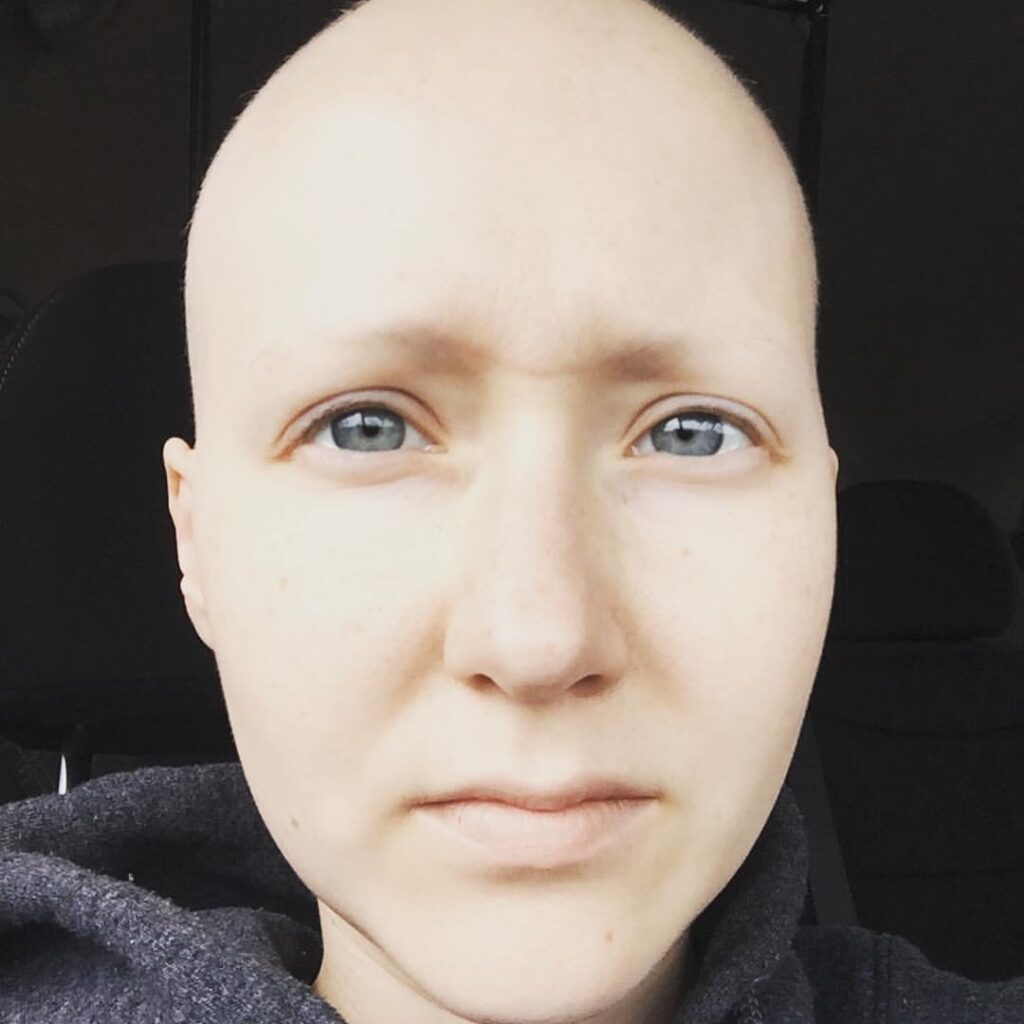
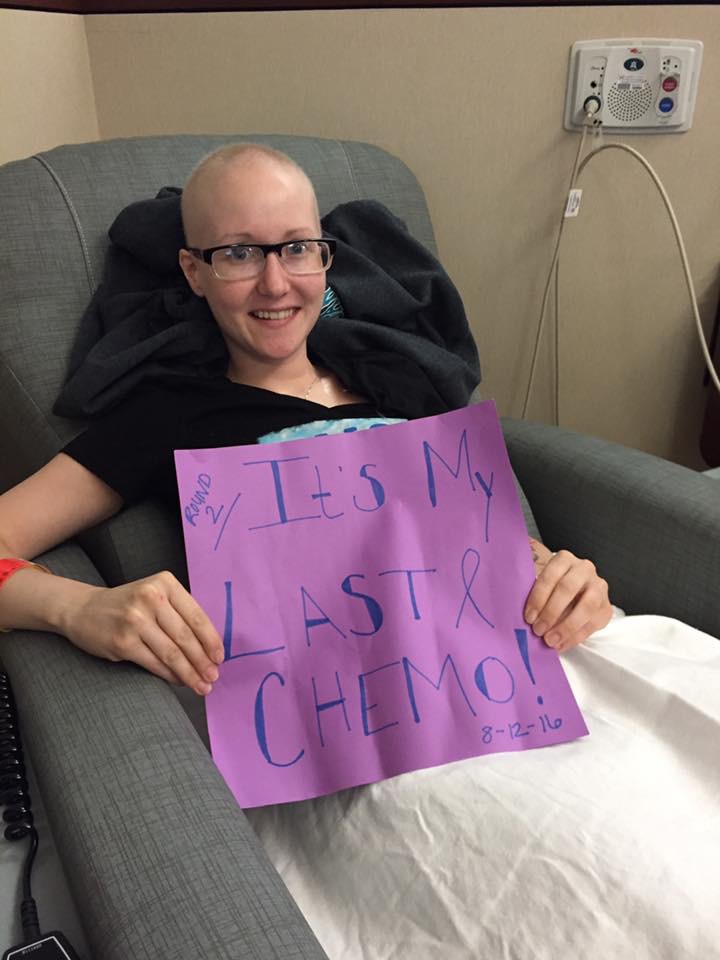
For those who don’t know me, allow me to introduce myself. My name is Morgan Newman, I’m a social worker, and I’m a Cervivor! I was diagnosed with endocervical adenocarcinoma at the age of 24 and then I was “hit” again with a metastatic recurrence to my lungs. Throughout my whole treatment, I wanted to do something more – to share my story, to advocate so others didn’t have to go through this horrible experience. I made little teal ribbons which eventually were teal and white ribbons to be more accurate and handed them out everywhere I went. I wanted everyone to know that cervical cancer existed because inside I felt all alone.
Right after I finished up my recurrence treatment, I stumbled across Cervivor due to a hashtag. I thought it was so clever to use “cervical” and “survivor.” The post mentioned a patient advocacy retreat and listed off the learning objectives of: learning the latest about HPV and cervical cancer, how to share your story, and connect with others who get it. This aligned with my values and what I wanted to accomplish. I signed up and fundraised my way to Delray Beach, Florida and the rest has been history.
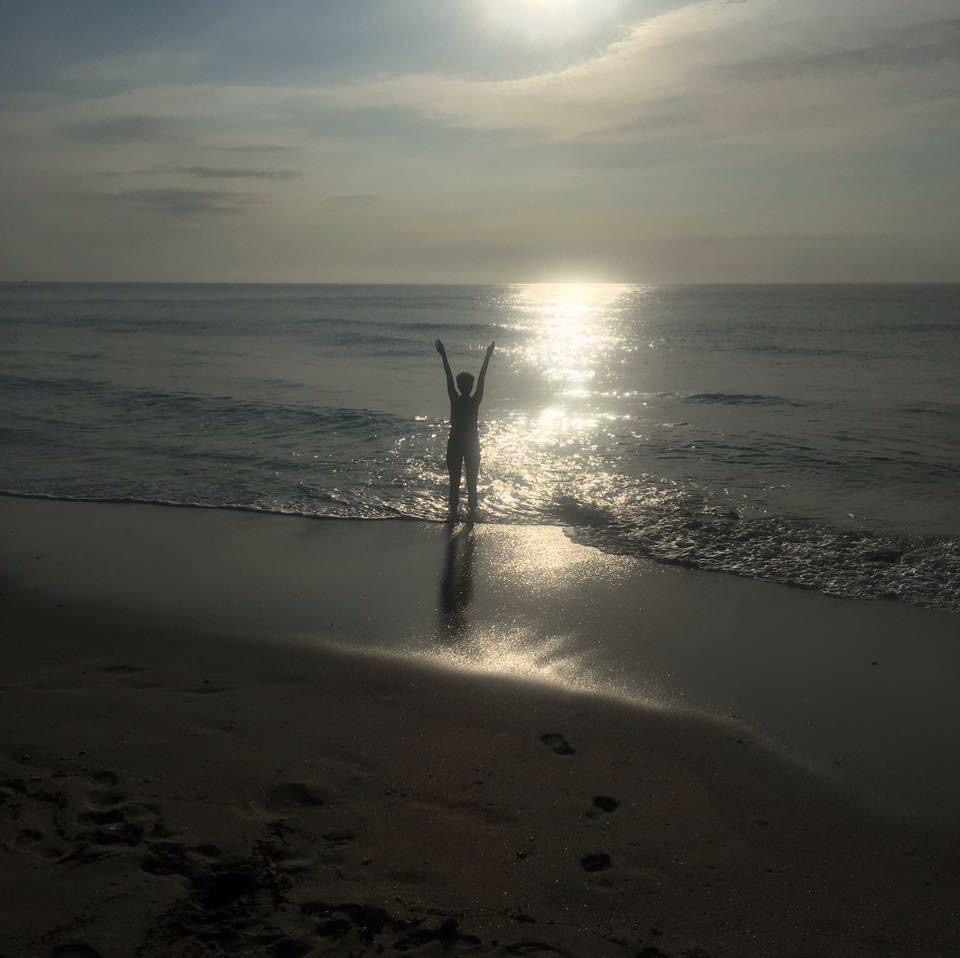
I graduated Cervivor School in June of 2017 and went back home to Iowa to start working in my local area as a Cervivor Ambassador. From that stemmed SO many opportunities that have helped me grow. While attending my second Cervivor School in Cape Cod, I was recognized by the Cervivor organization and was awarded the title of Cervivor Champion. I couldn’t believe it! Me?!
For the next two years, I continued to nurture those existing community partnerships and kept on building new ones. It was then I was recognized with two more awards from two other organizations. I still couldn’t believe it and to this day I am so proud of how far I have come. This leads me into graduating from the University of Iowa with a Masters in Social Work and bound to a Code of Ethics to serve others. I was offered a position with the organization and now I really can’t believe it. I work for the organization that gave me my voice after cancer.
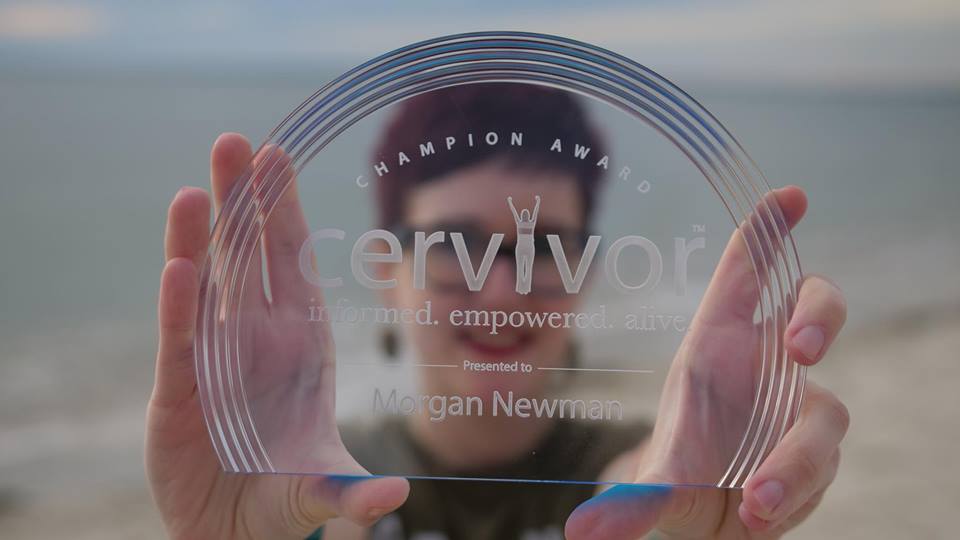
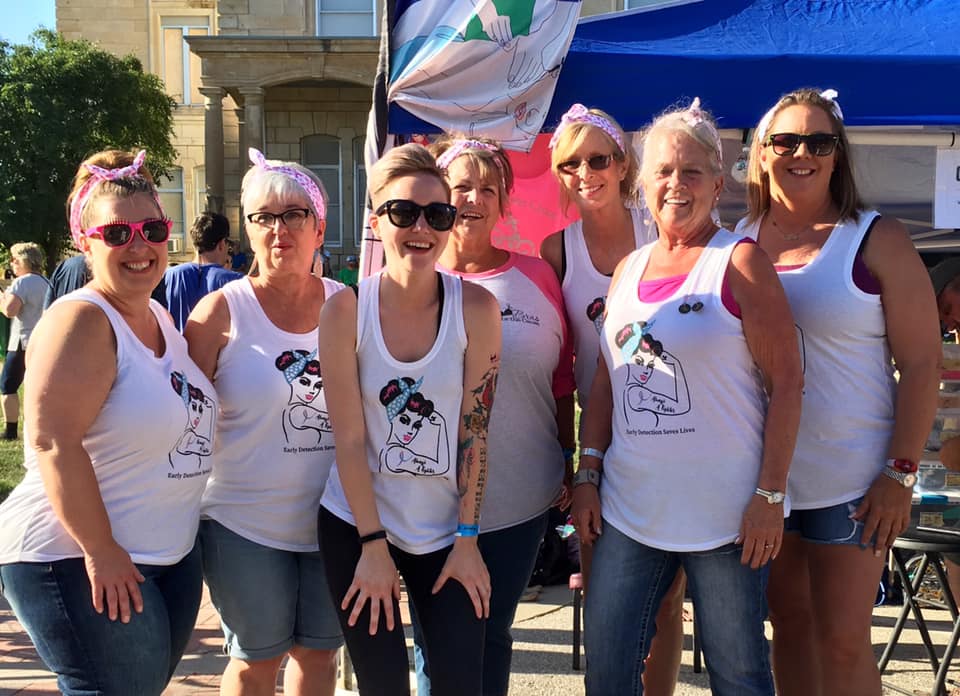
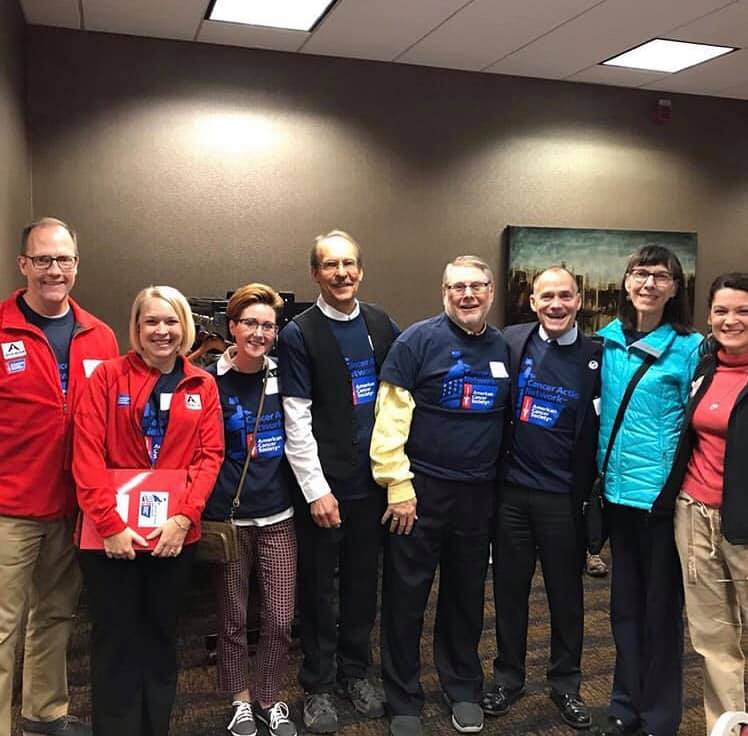
They say time flies when you’re having fun but really, where has the last year gone? My first year has been eye-opening yet so very rewarding. It has been a year of transition from a regular 9-5 career and volunteering in advocacy to a whole different world in the nonprofit sector.
Here are a few things I have learned along the way:
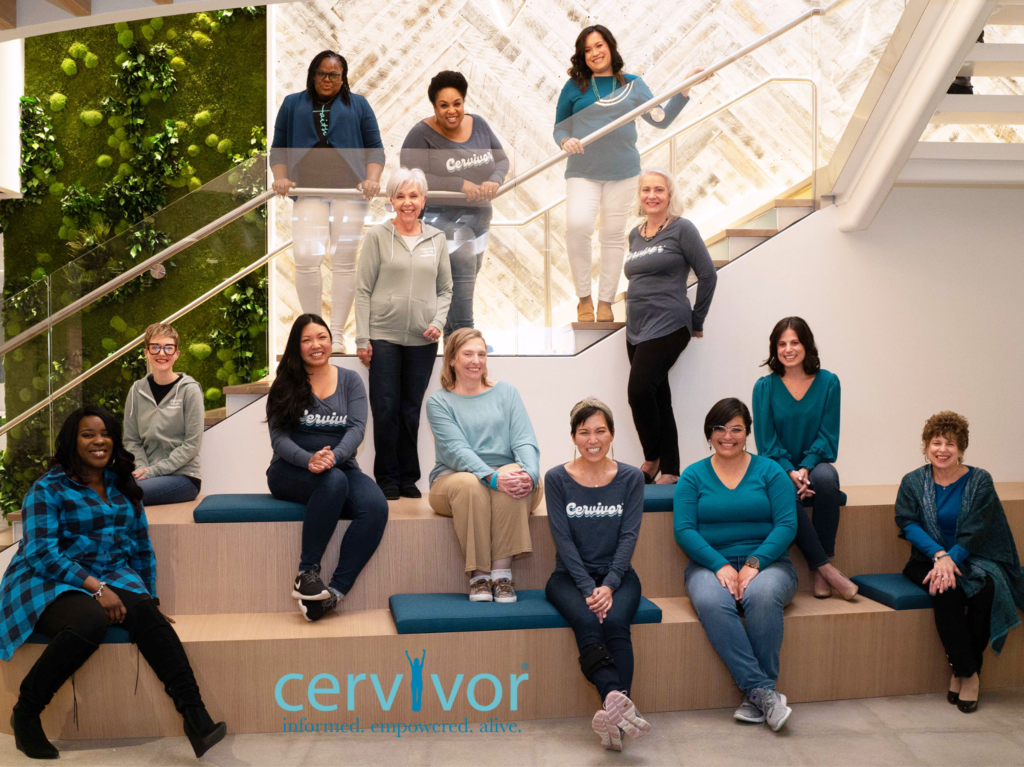
The mission is greater than just my own personal story. My passion for advocacy shifted from an individual level to an organizational mindset which is not an easy task (even for a trained social worker). These things can be presented as theories until we can actually put them into action. Sometimes we only understand something from our personal point of view and that causes us to only see a fraction of the bigger mission at hand. Our stories are powerful but they are so much more as a collective voice.
The work is hard. Even when you love your job, it can be mentally draining, exhausting, and at times…frustrating. Nonprofits are not like your regular 9-5, they come with some crazy hours including long days, nights, and weekends.
Teamwork makes the dream work. We have a creative, experienced mind and an organized, in-the-making mind. New and old ideas are able to be balanced, polished, and made into a reality.
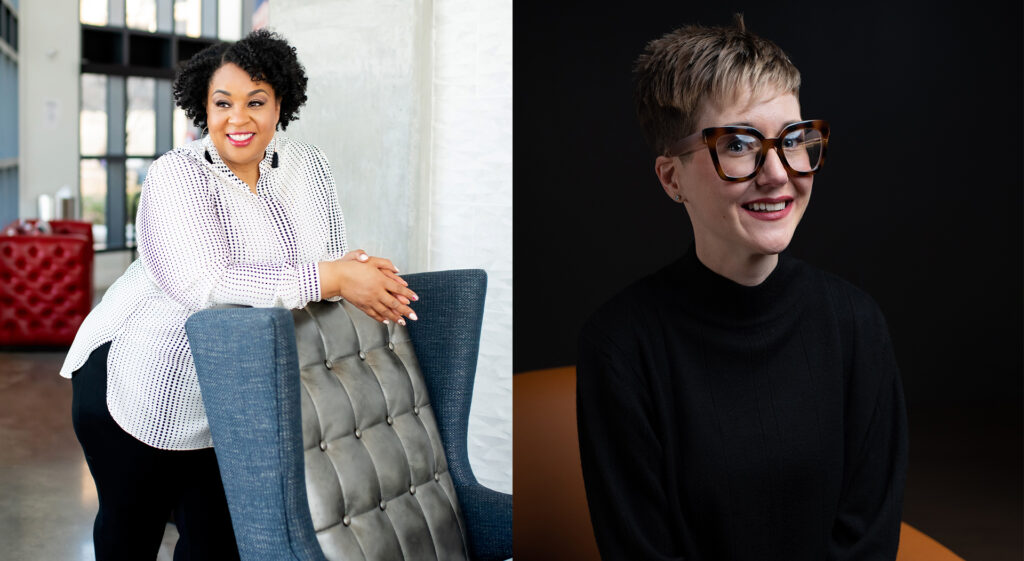
We are a small staff but fulfilling a BIG reach. Only two of us are employed and are doing the work that other nonprofits are capable of doing with a team of 10-12 people. We are so proud of the partnerships we have been able to build on a global scale with our grassroots advocacy.
Communications are our #1 tool. I’m a generalist social worker trained in people in their environment and how systems work. I’m not someone who graduated with a specific communications or marketing degree but I’m willing to learn. I tend to bring various strengths from previous employment and life experiences to the table and it helps balance the work dynamic.
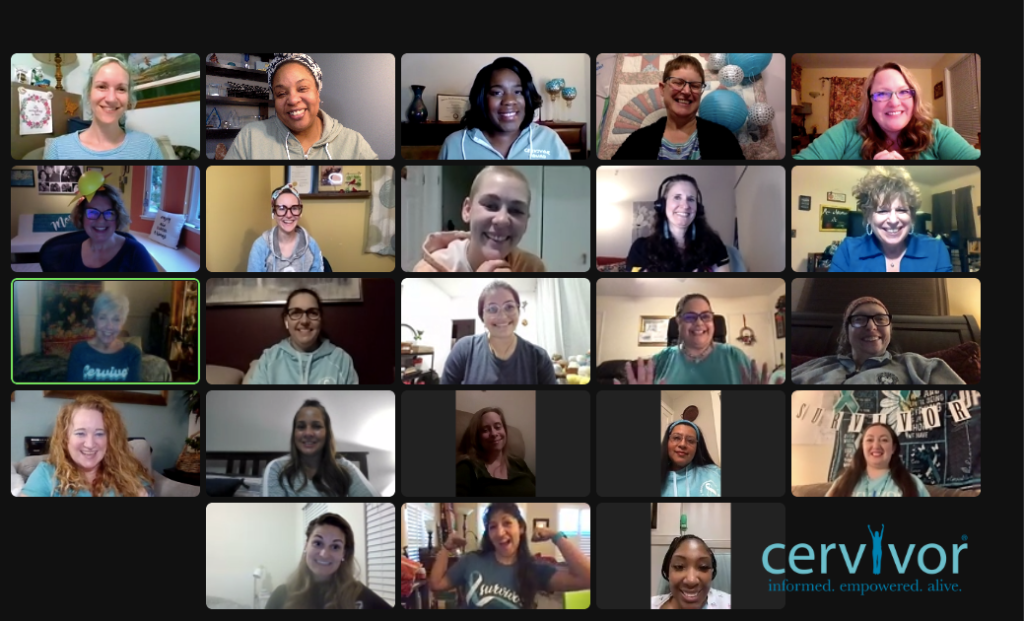
We are a community built by our community. Our community is diverse, rich in experience, and so supportive of each other. I’m really proud of all of our community members who have shared their stories, stepped up to advocate, and have extended their hands out to support others. Not to mention the individuals we’ve been able to reach thanks to our Comfort Care & Compassion Program.
Meet people where they’re at. Generally, everyone is doing the best they can at any given moment. It’s really that simple. Empathy and listening can go a long way. We see that firsthand at every Creating Connections support group meeting.
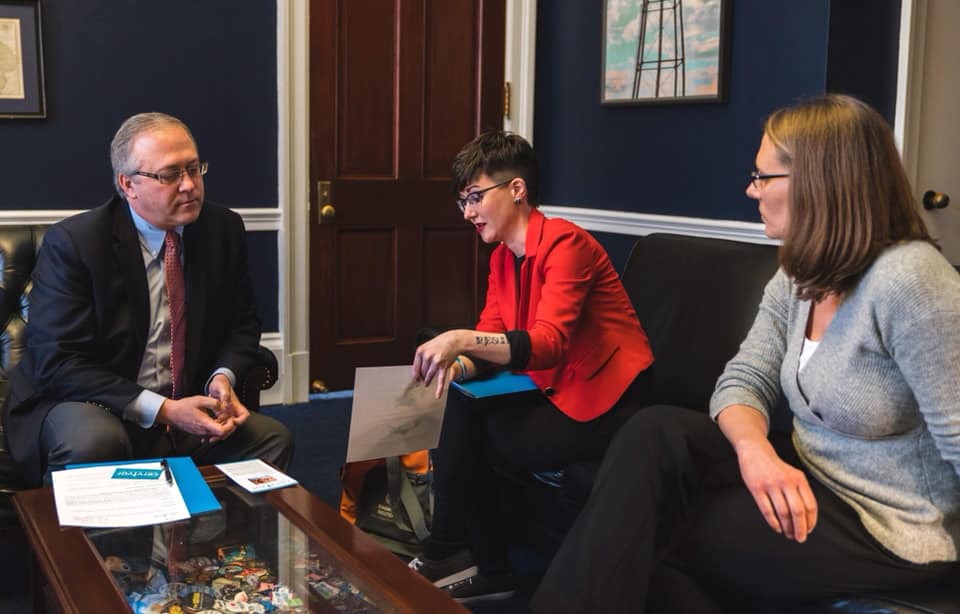
Advocates and Volunteers are everything. If no one shares their story, how can we truly make a difference? How can we put new policies and systems into place so we can continue to prevent others from going through cervical cancer, from HPV-related cancers, or worse, dying from a preventable cancer? We have the ability to be a part of that process and we have been able to accomplish so much together already. There’s so much more work left to do and we’re just getting started. Want to get involved? Sign up to become a Partner in Purpose.
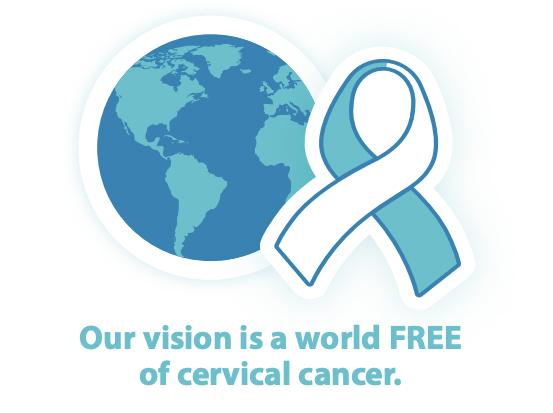
Funding is crucial. Philanthropy isn’t just about giving away money. It’s about changing the world. Right now, we have over 604,000 individuals worldwide being diagnosed with cervical cancer every year with 342,000 dying from cervical cancer. Communities of color are dying at disproportionate rates and we are committed to closing the gap in cervical cancer disparities. I encourage you to consider a one-time donation to Cervivor or to become a monthly donor. There’s still so much work left to be done and we could not do what we do without your support financially.
Growth and development are everything. Always come in with an open mind and be willing to learn. Don’t assume you know everything, you’re minimizing your maximum potential. Don’t be afraid to step outside of your comfort zone.
We are far from perfect. In today’s fast-paced world, it’s insane to expect perfection (including towards yourself). You are bound to make mistakes and it’s okay. Acknowledge them, accept them, learn from them, and know we are always striving to do better than before.
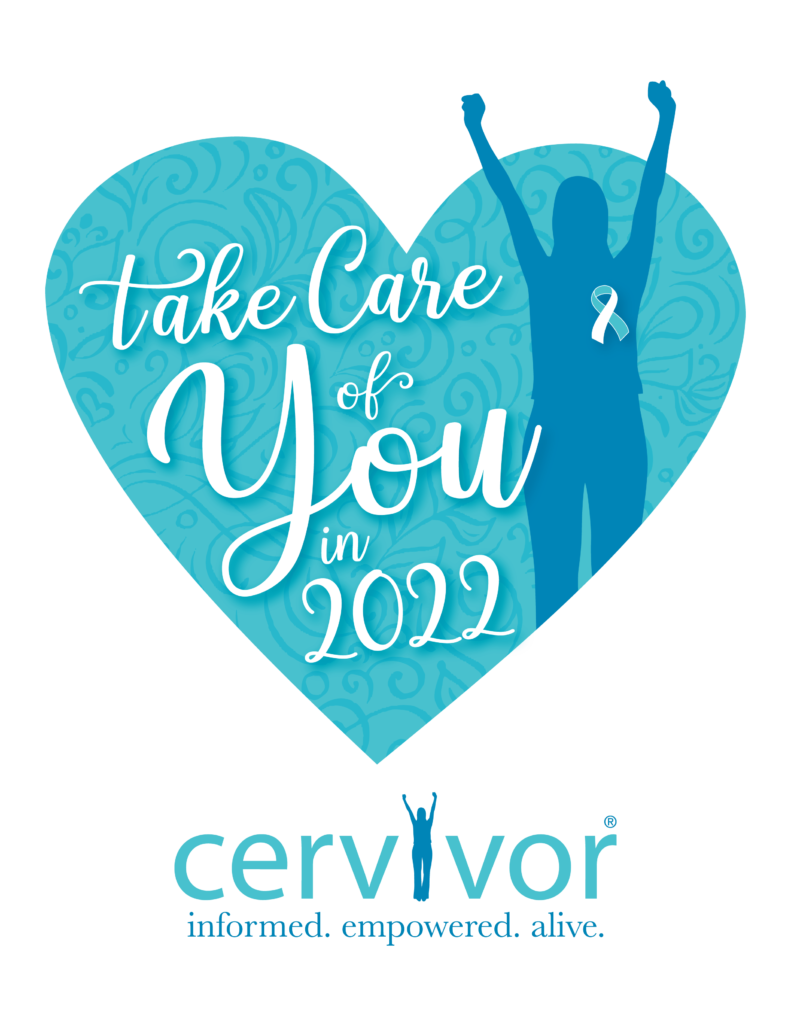
Self-care is absolutely necessary to prevent burnout. Maintaining the motivation and stamina for this work with such a small team and the glaring reality of loss in our community can be difficult but the mission remains the most important thing to us and it keeps us going on a day-to-day basis. Having a passion for the cause can make it extremely difficult not to answer a message or email on your time off but it is absolutely necessary to prevent yourself from feeling exhausted, overwhelmed, emotional, and burnout. We are certainly following our 2022 campaign of Taking Care of You in 2022!
I’ve learned a lot in just a year’s time and I’m grateful for my job, to understand the work that is being done behind the scenes, to be able to sit on various advisory boards, research teams, to maintain and develop our programming, and to meet our partners and to hear their passion in the work that they do – it is all truly rewarding. Every time I am connected with someone in our community, every time I am connected to a family or friend honoring their loved one who has passed from cervical cancer, every time I see those statistics of diagnoses and cervical cancer disparities, I am reminded of just how important this work is. It keeps me humbled yet motivated for the next thing. I cannot wait to see what else the future holds for our Cervivor community and organization.
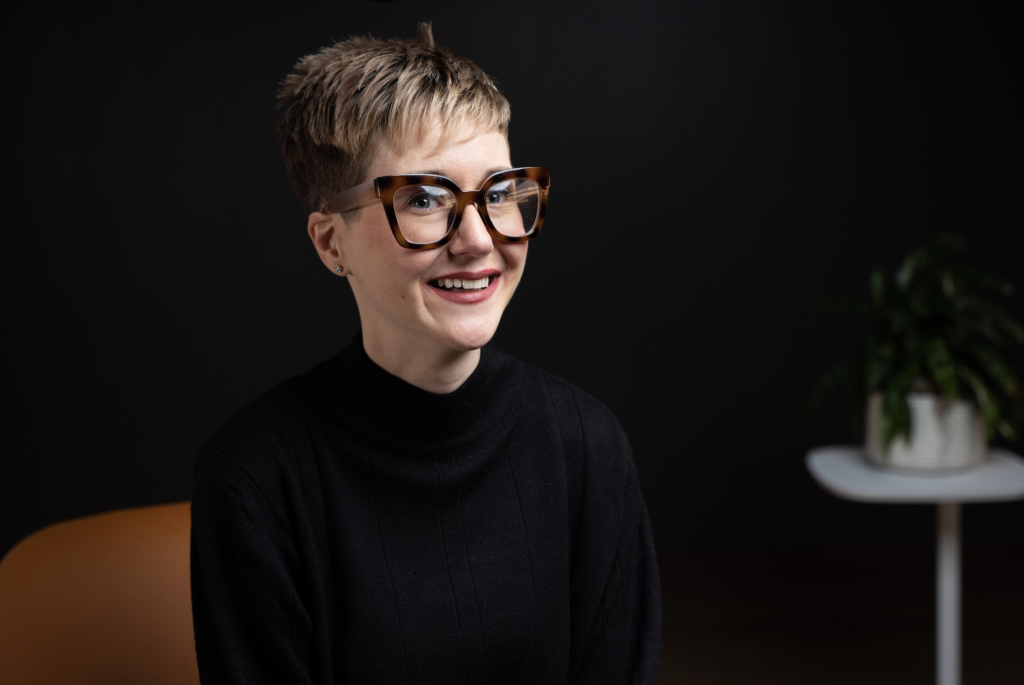
Morgan Newman, MSW, Outside of her Community Engagement Liaison position at Cervivor, you can find Morgan nurturing her relationships with local community partner organizations like the American Cancer Society Cancer Action Network (ACSCAN), the Iowa Cancer Consortium, and serving as a board member for Above and Beyond Cancer. Learn more about Morgan at Cervivor.org.
